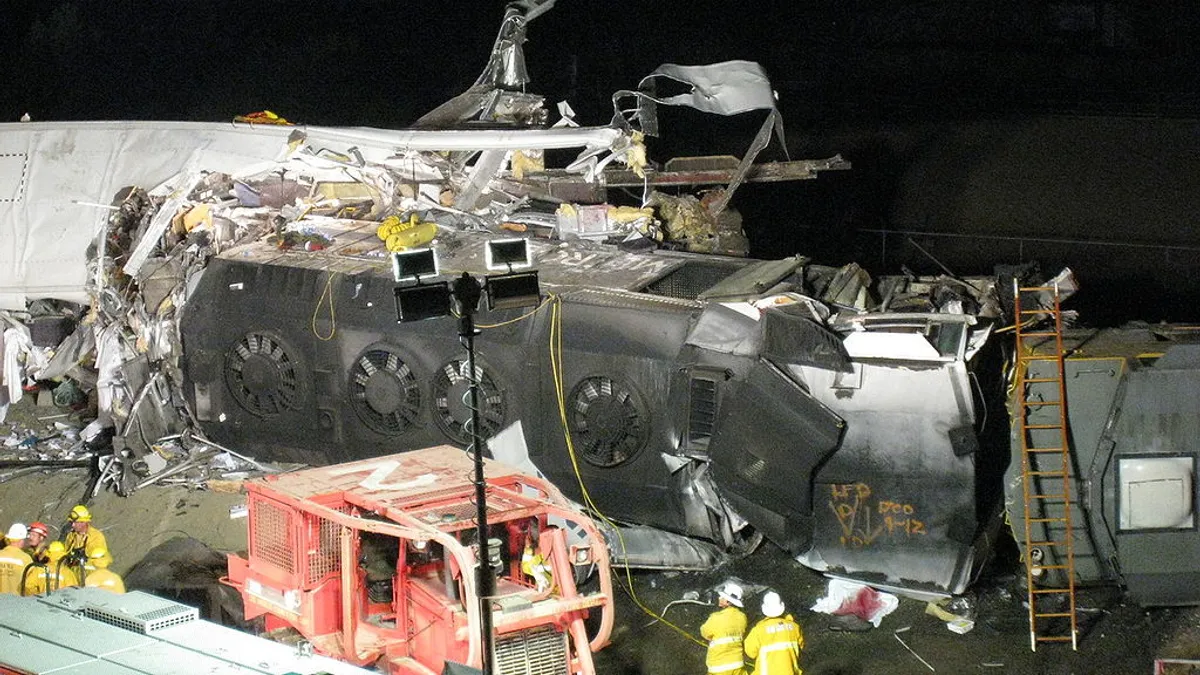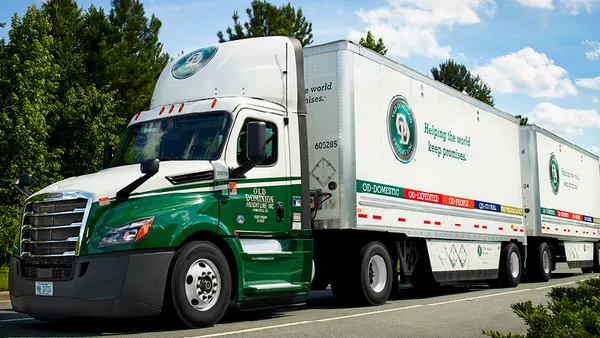CORRECTION: A previous version stated railroads received a D+ grade by the American Society of Civil Engineers. Rail infrastructure scored a B in the society's most recent report.
Dive Brief:
- Cracks in railroad tracking and defective or absent fasteners caused two recent derailments and explosions, the AP reported.
- Countless similar track defects were discovered by government inspectors examining the lines used for transporting volatile crude oil. Worn rails, bolts in disarray, and cracked steel bars were among the flaws found.
- While imperfections are not unheard of along well-used railroad tracks, particular attention is now being paid to their presence as crude oil shipments increase, bringing with it the threat of hazardous derailments.
Dive Insight:
With railroads receiving a B grade from the 2017 American Society of Civil Engineers infrastructure report and requiring a $154.1 billion dollar infusion to return them to full working and safety excellence, the news of tens of thousands defects is predictable.
Yet it's not just rail that's having a detrimental effect on industry. The chemical industry is unduly affected by logistics, given the tight temperature controls and complexity of hazmat transfers. In particular, chemical companies have voiced concern over regulations on truckers' hours of service and hazmat training stifling the trucking industry's capacity, as 61% of chemical shipments travel by truck. In addition, the industry has not forgotten the 2015 West Coast port strike, which delayed shipments for days, driving down profits.
The industry's growth then may depend on the promised infrastructure upgrades alleged to be announced sometime during 2017. It's likely that frustration is growing.













